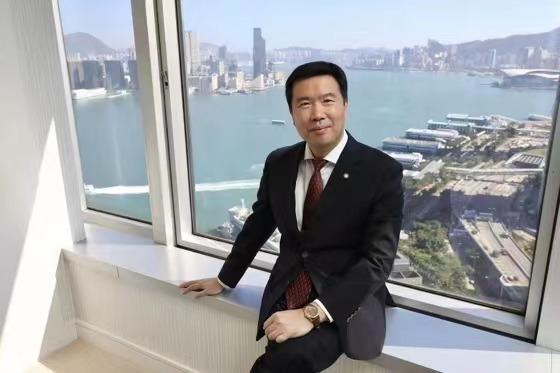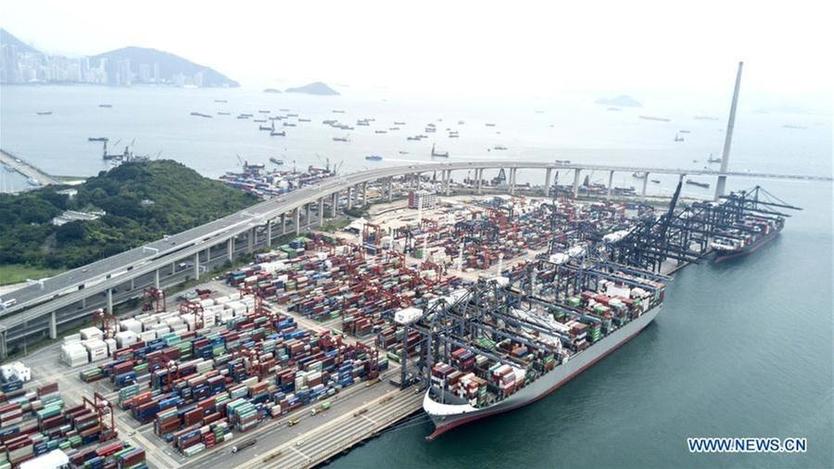 This file photo shows general manager of China Merchants Port and newly-elected legislator Erik Yim Kong. (PHOTO PROVIDED TO CHINA DAILY)
This file photo shows general manager of China Merchants Port and newly-elected legislator Erik Yim Kong. (PHOTO PROVIDED TO CHINA DAILY)
The Hong Kong Special Administrative Region can collaborate with the other cities within the Guangdong-Hong Kong-Macao Greater Bay Area on various aspects, such as policy-making to build a better ecosystem, and can leverage its position as an international shipping hub, said Erik Yim Kong, general manager of China Merchants Port, who was selected as the commercial (third) functional constituency at the Legislative Council.
During an interview with China Daily, the newly-elected legislator said the shipping industry in Hong Kong is facing three main problems: homogeneous competition among harbor groups, an ageing labor force, and a shortage of ocean-going lines.
Hong Kong government needs to cooperate with other cities in the Bay Area on related policy-making to promote its status as an international shipping hub ... Measures should be made on a broader landscape to lift working efficiency and maximize benefits.
Erik Yim Kong, newly-elected legislator and general manager of China Merchants Port
For years, the repeated construction of harbor groups and homogeneous competition in the Guangdong-Hong Kong-Macao Greater Bay Area has led to a huge waste of resources, which could have an adverse effect on the future development of the 11-city cluster, Yim noted.
“Hong Kong government needs to cooperate with other cities in the Bay Area on related policy-making to promote its status as an international shipping hub,” the shipping industry veteran said, adding that he will focus his efforts on tackling the following challenges.
“Measures should be made on a broader landscape to lift working efficiency and maximize benefits,” Yim said, citing a proposal for the construction of a “combined port” involving Hong Kong, Guangzhou and Shenzhen as an example.
ALSO READ: Lawmaker to focus on greater GBA integration
Through such collaboration, the city’s land use and land shortage problems can be addressed, he added.
“Kwai Chung’s land for port uses has been a problem in the long term, which caused Hong Kong’s land shortage to some extent, but this can be solved if a ‘combined port’ is realized,” he said. “Deeper conflicts such as the city’s land shortage and long commuting time for workers could also be addressed.”
 The Kwai Chung container terminal is seen in Hong Kong, May 18, 2017. (PHOTO / XINHUA)
The Kwai Chung container terminal is seen in Hong Kong, May 18, 2017. (PHOTO / XINHUA)
Additionally, Hong Kong’s shipping industry is facing a labor shortage problem as aging workers gradually retire. The dangerous working environment also causes health problems for those who work in the industry.
Both of these factors have led to nearly a tenfold decrease in the number of people employed in the industry compared with a decade ago, which could hinder the city’s development as an international shipping center.
The shortage of ocean-going lines is another problem, Yim said. He will suggest the government takes steps to resolve this problem.
READ MORE: Luminaries see GBA as global financial hub
He noted that state-owned enterprises could play a more important role in the city’s development, as well as contribute to the national plan.
“Mainland enterprises that are based in Hong Kong have accumulated huge resources and advantages in the past years and many of them have been included in the top 500 companies globally,” Yim said. “I hope those enterprises can be the bridge between Hong Kong and Chinese mainland markets and absorb more talents in Hong Kong to contribute to the national development.”


